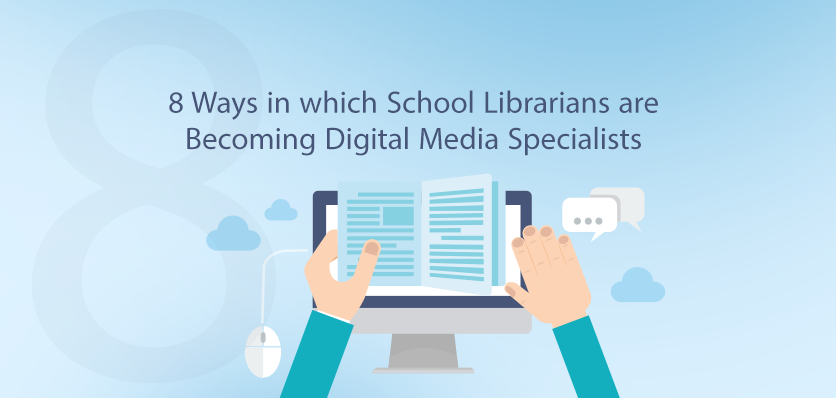
A 2012 US survey found 87% of school librarians are in charge of choosing and running the technology in a library: which in effect, is really a license to shape their own role. Here therefore are eight suggestions for making the most of this opportunity.
School librarians have four main roles.
Fundamental is being a teacher/librarian: an effective educator with up-to-date knowledge on numerous topics, and a proactive presence among students. Think how digital media can help you: staying abreast of topics, and increasing your input into classrooms and the learning process generally.
In your instructor role, you should mentor students to become independent digital learners, fostering their research, information literacy, technology, communication and analytical skills.
As an information specialist, you should create a fresh, dynamic balance between old and new media in the library’s content and organization. This might include integrating digital formats such as websites, digital videos and images, podcasts, blog and wiki content, virtual classrooms, etc.
As a program administrator, not only will you need to establish policies and oversee budgets, you’ll also plan the physical and virtual library space, and create a welcoming, positive, and innovative atmosphere. Think how digital formats can enhance this.
Of course, librarians have a never-ending cycle of organization and maintenance to manage, even if the era of endlessly returning books to shelves has diminished. While such functions are important, they shouldn’t become too much of a focus. As a digital media specialist, it’s essential you’re an integral part of teaching and learning.
You’re the go-to person for digital media in your school. But always make sure you’re advising teachers on how technology can enhance a subject, not just on the technology itself.
Email or tweet teachers, updating them on new resources and techniques you find. This could include introducing partnerships – for example, when a class is studying a topic, why not set up a Skype session with a local expert, such as a University professor?
At the same time, constantly ask students and teachers what resources and services they need. There may be a piece of technology (or a way of using it) you’ve not come across before, or a resource you’re unfamiliar with.
No institution has bottomless pits of cash, and the potentials of digital media always need to balance the reality of school budgeting.
If anyone’s going to fight for investment in buying and upgrading technology, it should be the librarian. Don’t be scared to do so – the survey mentioned earlier found that 55% of librarians feel their tech skills have increased their ‘value’ to schools, boosting their negotiating position!
That same survey also found that 44% of librarians now serve on their school’s technology panel. Many are going as far as physically merging the library with IT functions such as a Help Desk. Could this work for you? Would it increase digital literacy?
Help students appreciate that, sometimes, books provide richer and more reliable information than the often-cursory nature of web resources. Knowing when a book is the best option is something worth preserving, forever.